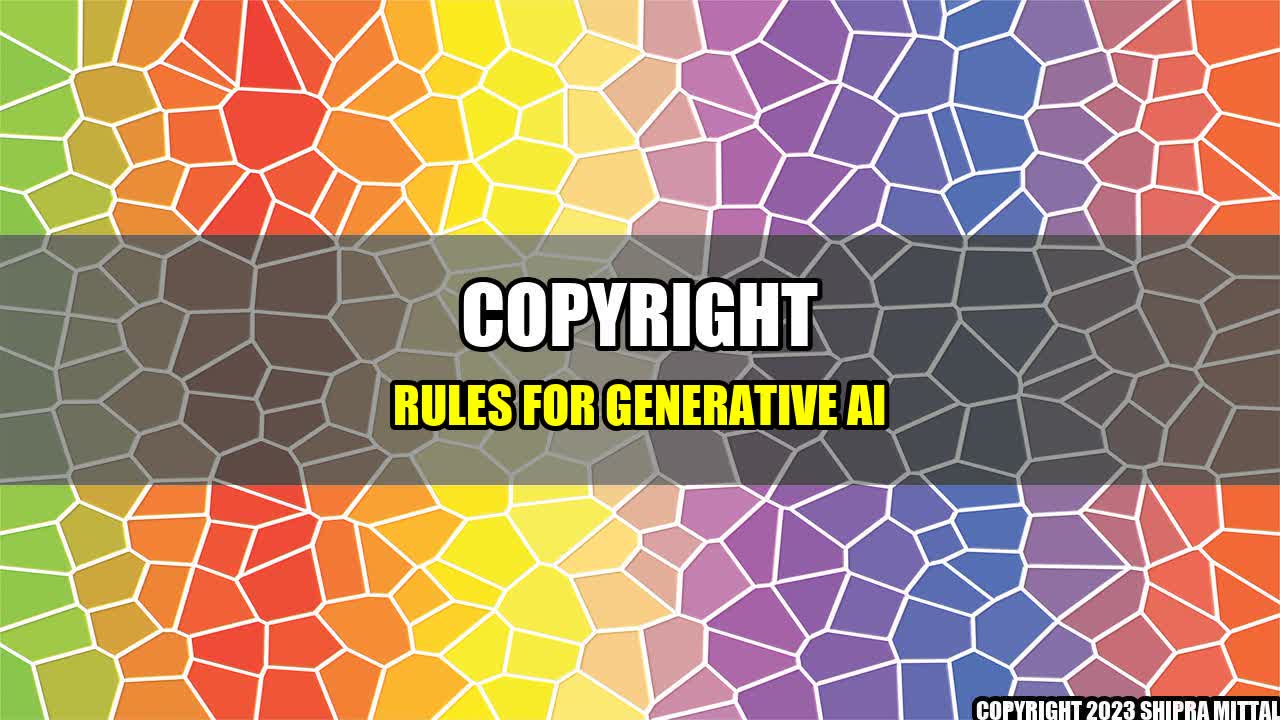There was once an artist who used generative AI to create a piece of artwork, but later found out that someone else was selling prints of their creation without permission. The artist was confused about their rights and wondered, "Who owns the copyright of this artwork, me or the AI?"
This story highlights the growing debate around copyright laws for generative AI. As machines become more advanced, they are able to create content that is almost indistinguishable from human-made pieces. This raises questions about ownership, attribution, and compensation in the art and tech industries.
The Rise of Creative AI
Generative AI is the practice of using algorithms to produce original content, such as art, music, and writing. Companies like Google, Adobe, and IBM have invested heavily in this technology, and it has resulted in some impressive creations.
One example is "The Next Rembrandt," a painting that was created using a deep learning algorithm to analyze the Dutch artist's style and replicate it. Another is Amper Music, an AI music composition tool that allows users to create original songs in minutes.
The Copyright Debate
As generative AI becomes more prevalent, the question of who owns the rights to the content it creates becomes more complicated. Currently, copyright law is based on the idea that humans create original works, and therefore have the rights to those works.
But what happens when the creative process is shared between humans and machines? Some argue that the AI and its creators should be considered co-authors of the work, while others believe that the person who presses the "generate" button should receive all the credit and compensation.
Real-Life Examples
One company that is at the forefront of this debate is OpenAI, a research organization that develops advanced AI systems. In 2019, OpenAI created an AI language model called GPT-2, which is capable of producing human-like text. The company chose not to release the full version of GPT-2, fearing that it could be used to create dangerous fake news and propaganda.
Another example is Aiva, an AI music composition tool that has been used by the Royal Liverpool Philharmonic Orchestra and other big names in the classical music world. Aiva's creators argue that the AI is not a replacement for human creativity, but rather a tool to assist musicians in their work.
Conclusion
The copyright debate surrounding generative AI is far from over, and it will likely become more complex as the technology improves. However, it is clear that this technology has the potential to revolutionize the creative industries and open up new opportunities for artists and musicians.
As AI becomes more prevalent in our lives, it is important to consider the ethical implications and ensure that creators are properly credited and compensated for their work.

Akash Mittal Tech Article
Share on Twitter Share on LinkedIn